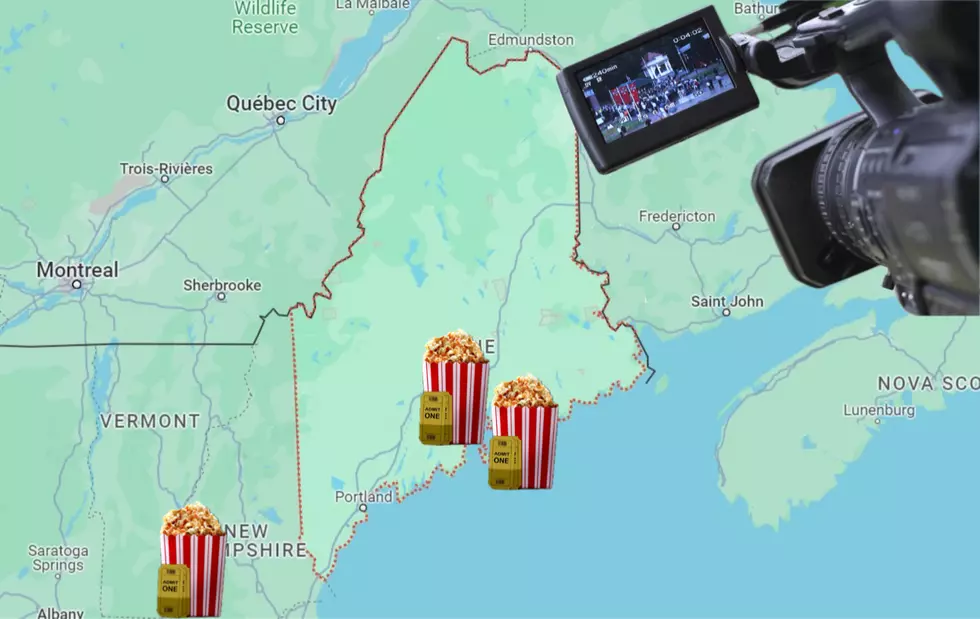
‘Next Led Zeppelin’ Bands: Where Are They Now?
Led Zeppelin's debut album forever changed the path of hard-rock music.
Their mix of mysticism, sexuality and thundering talent took the shape of a towering musical specter that conjured danger, hedonism, and, most importantly, the future of rock 'n' roll.
Over the years, dozens of bands have been called the "Next Led Zeppelin" because they've applied many of these same elements to their music. Notably, one artist who has avoided that tag at all costs has been Zeppelin singer Robert Plant, who's shot down band reunions ever since he launched his solo career in the early '80s.
But is being called the "Next Led Zeppelin" a blessing or a curse? How have their careers shaped up since being passed the torch? We've rounded up a handful of the biggest artists who have been saddled with that label over the years, starting with the latest: Michigan-based upstarts Greta Van Fleet.
Greta Van Fleet
Newcomers Greta Van Fleet ripped into our consciousness within the past year with their radio hit "Highway Tune." The song has earned distinction not just for its impressive commercial feat, but in the composition's striking resemblance to an early '70s Led Zeppelin song -- so much so that headlines are already asking "Is this band the next Led Zeppelin?"
Even though Greta Van Fleet may not have been born in the cradle of Detroit Rock City (their native Frankenmuth is about 100 miles north in Michigan), you'd never know it. The band's brand of blues-heavy hard rock honors the genre had been inviting comparisons to Zeppelin in Detroit well before they broke nationally, starting with their independently released 2014 album, Greta Van Fleet: Live in Detroit.
The band doesn't have a problem with the comparisons. "We'll take it," singer Josh Kiszka said. And why not? As the band noted in a 2017 interview, "There are worse things to be compared to than Led Zeppelin."
Whether Greta Van Fleet manage to assert themselves as heirs to '70s-stylr hard-rock stardom remains to be seen. But they've shown a more promising start then most, including a sold-out U.S. tour based on the strength of one EP.
Kingdom Come
Kingdom Come's heavily Zep-influenced debut 1988 single "Get It On" earned perhaps the sharpest imitator take down ever from Jimmy Page. "It can get to the point where it gets past being a compliment and it can be rather annoying," the Led Zeppelin guitarist once said. "When you've got things like Kingdom Come, actually ripping riffs right off, that's a different thing altogether."
At first, singer and band leader Lenny Wolf pleaded innocent. "We didn't set out to copy them," he told the Los Angeles Times in 1988. "When I was sitting in my room writing these songs, I had no idea the album would sound like this." But years later, in a 2011 interview, he acknowledged that the group was "excited" by the Zeppelin comparisons: "We took it as a compliment. Every band, especially young bands, are influenced by somebody, and those influences will surface when you start writing your own stuff."
He also wasn't afraid to push back at his idols. "It really made me sad when I noticed Jimmy Page, who was one of my heroes, starting to whine about little Kingdom Come, who was never really a threat at all," he said. By comparison, he claimed Plant was very friendly when they met: "He's really above everything," Wolf recalled. "He was joking with us, and it was really great."
While never wandering too far from their roots, with Wolf at the helm of several shifting lineups, Kingdom Come expanded their sound, released 12 more albums and maintained a successful touring career over the next three decades before he called an end to the group in 2016. "It’s been a fantastic 30 year long musical ride, for which I can only be very grateful," he said.
Billy Squier
Massachusetts-born songwriter Billy Squier became a breakthrough success in 1981, the year after Led Zeppelin had broken up. On the strength of his sophomore album, Don't Say No, the singer found himself refilling arenas that had emptied in Led Zeppelin's absence. But the release of the album's third single, "Lonely Is the Night," drew comparisons to the legendary band.
"I was very humbled by the 'one-man Led Zeppelin' comparisons," Squier reflected in a 2006 interview. "They were a band of staggering proportion and incredible vision." As the impressive push-and-pull dynamics of "Lonely Is the Night" attest, Squier spent many hours painstakingly dissecting that vision.
He managed to maintain the momentum for two more albums, but the resemblance to Zeppelin may have been even more crucial than anyone knew. While Squier ably adjusted his sound to the decade's shifting consumer tastes and away from the Zeppelin influences, his big shift into an MTV star wasn't so graceful. "Rock Me Tonite" earned him his highest charting single, but the accompanying video was widely criticized and mocked. Due to the increasing importance of an artist's video presence, the minor misfire proved costly, forcing Squier to abandon the "Next Led Zeppelin" torch ahead of schedule.
But it could equally be argued that his inroads with the MTV generation weren't thwarted, just temporarily waylaid. In later years, Squier found favor with rappers who sampled a number of his songs.
Whitesnake
Whitesnake frontman David Coverdale's long-held affection for Led Zeppelin has never been a secret. But he's often been criticized for his Plant-styled belting and songs that liberally evoke Zep's unmistakable aura.
"Slow an' Easy" and "Still of the Night" are considered to be the biggest imitators, with the latter bearing distinct echoes of "In My Time of Dying"and "Whole Lotta Love." Plant even once dismissed Coverdale as "David Cover Version." The swipe led Coverdale to respond that he "wouldn’t send him cat food if he was starving.”
More directly, Plant's insult derives from his distaste for Coverdale's early '90s collaboration with his former guitarist under the moniker Coverdale•Page. The duo's self-titled debut was successful, but the tour was abandoned after its Japanese leg. One recurring criticism was that Coverdale's appearance had been too identical to-- yep -- Plant's.
While never having earned the mystique of Plant, Coverdale carved out a long recording and touring career with Whitesnake as the only constant member over the years.
Wolfmother
Emerging in the midst of the '00s garage-rock boom, Aussie rockers Wolfmother took the burgeoning fad a step further, honing a sound better suited for arenas than basements and bars. The band separated itself from their retro-minded contemporaries like the Strokes and the White Stripes by winking to Led Zeppelin as opposed to the Velvet Underground.
The group unleashed its self-titled debut in 2005, and the incinerating fourth single, "Woman" led to heavy airplay and comparisons to one of rock's most important bands.
But as often is the case, Led Zeppelin parallels aren't always drawn with the same motivations. "I thought people were being really generous," bassist Chris Ross said at the time. "And then after a while some people say it like it's a bad thing or as if we're like plagiarizing them or trying to be them or something."
The negativity hasn't unseated the band. Ross departed in 2008, but Wolfmother released their fourth album Victorious in 2016.
Zebra
Hardly a year had passed since Rush's debut album before another prog-minded power trio threatened to close in on the Canadian three-piece's share of the market.
Founded in New Orleans in 1975, Zebra cut their teeth performing at clubs in Long Island and the northeast for years before landing a record deal. But it was the band's arsenal of convincing Led Zeppelin covers that drew overwhelming enthusiasm from audiences.
Zebra peaked commercially with their self-titled debut a decade later in 1985, thanks to airplay for the singles "Who's Behind the Door?" and "Tell Me What You Want." That mainstream success didn't last long. But frontman Randy Jackson didn't call it quits. His devotion to Zeppelin has spawned a regular gig performing Led Zeppelin songs with his rock band accompanied by a classical orchestra.
Why Led Zeppelin Won’t Reunite Again
Led Zeppelin Albums Ranked
More From








